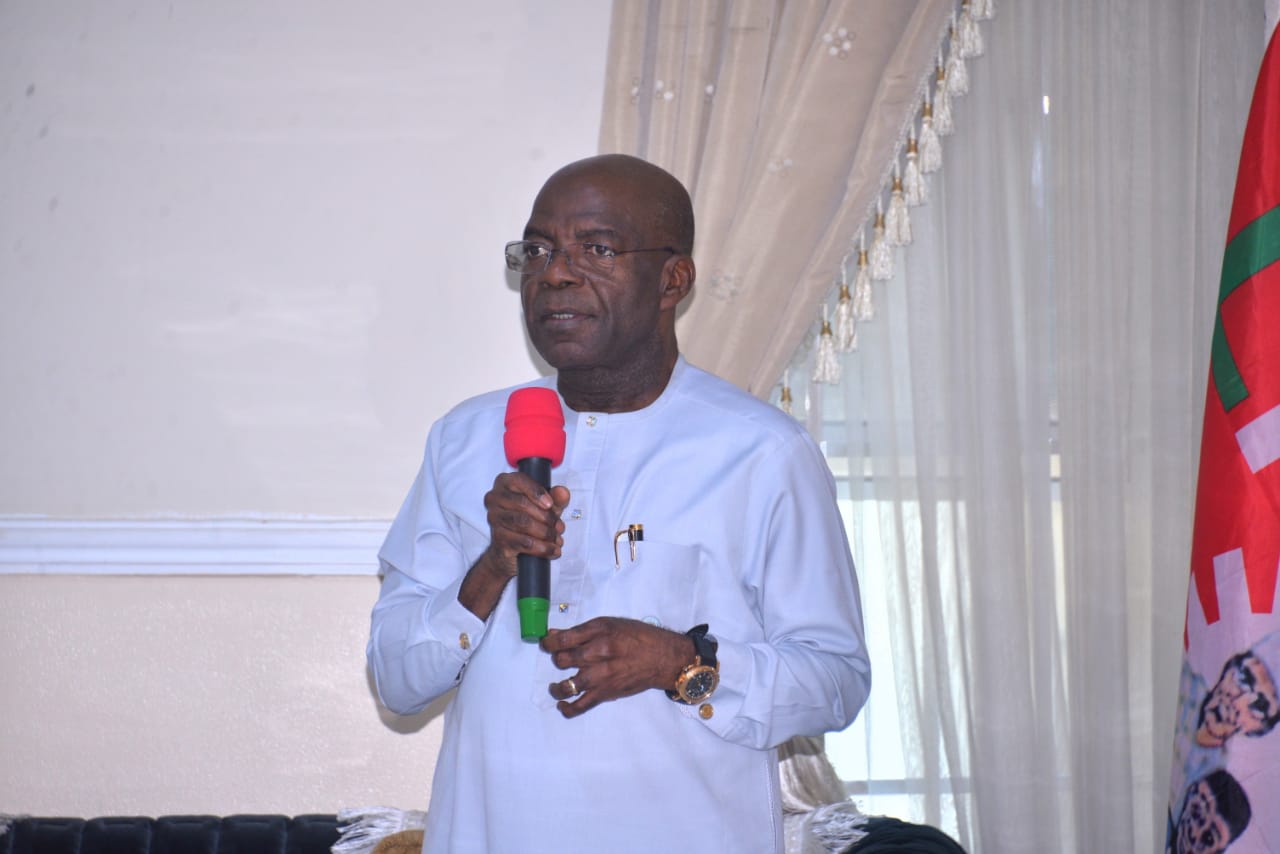Abia State Governor Dr Alex Otti has flagged off the Micro Small and Medium Enterprise, MSME Competitiveness and Industrial Productivity Program (MCIPP).
The MCIPP; a joint initiative of the Abia State Government and Ethnocentrique Limited, implemented in collaboration with critical stakeholders is aimed at promoting indigenous creativity, empowering entrepreneurs and positioning Abia as a global skill and innovative hub.
Speaking at the flag-off ceremony held at the Micheal Okpara Auditorium Umuahia on Thursday, Governor Otti reaffirmed his administration’s commitment to supporting MSMEs with funding, skills training and structured systems.

The Governor who recalled the the State Government had launched the First Phase of the programme involving 1,000 MSMEs, said the State plans to scale participation to 10,000 beneficiaries.
He commended Ethnocentrique Limited for initiating the industrial support model before State Government involvement, noting that its success convinced the State to fully adopt and expand the project.
Governor Otti disclosed that efforts are being made by the his administration to promote Abia’s “Akwaete Cloth” fashion line at the UN General Assembly, but warned that counterfeits were already emerging abroad which he said raises the need for intensive efforts to trademark the product.

He urged manufacturers and consumers to end the practice of branding locally made products with fake foreign names, warning that the trend suppresses indigenous innovation and undermines economic growth.
“Our major task is to change the mindset of consumers, traders and manufacturers so that ‘Made-in-Abia’ products would be recognised as original rather than fake”, Governor Otti said.
In her speech, Chief Executive of Ethnocentrique Ltd., Mrs Irunna Ejibe, said MCIPP represents a shift from ad-hoc interventions to a structured industrial ecosystem anchored on certification, standards and enterprise systems.

Mrs Ejibe revealed that recent programmes implemented in the State have generated a N4.4 billion ecosystem value, created 2,000 jobs, formalised more than 500 MSMEs, and enabled young entrepreneurs to access finance and new markets.
According to her, phase one of MCIPP will include the certification of 1,000 artisans, development of assessors, training of 100 Business Development Service Providers (BDSPs), registration of 2,000 businesses and trademarking of 100 indigenous brands.
In his remark, the Registrar of Trademarks, Commercial Law Department, Federal Ministry of Industry, Trade and Investment, Dr Shafiu Yauri, said that Nigeria operates manual, semi-digital and fully online trademark systems, supported by the World Intellectual Property Organization’s Industrial Property Automation System.

He noted that the registry maintains one of the lowest official fees in Africa to encourage SME participation and is planning a major SME-focused IP training programme in 2026.
Also, President of the Leather Products Manufacturers Association of Abia State, Mr Confidence Nwobilor, said the campaign against foreign-branded “Made-in-Abia” goods has yielded only 20 percent success so far.
He lamented that traders still demand foreign labels, causing the State to lose invisible tax revenue, especially when such products enter export markets.

In his opening remarks earlier, the Commissioner for Industry and SME Development, Mr Mike Akpara, said the initiative aims to scale business formalisation, intellectual property protection and skills certification across Abia.
He added that the programme targets the registration of 4,000 MSMEs with the Corporate Affairs Commission and sectoral regulators, the production of 1,000 National Skills Qualifications Framework (NSQF) certified artisans as well as the training of 200 NSQF assessors to institutionalize local certification systems.

























